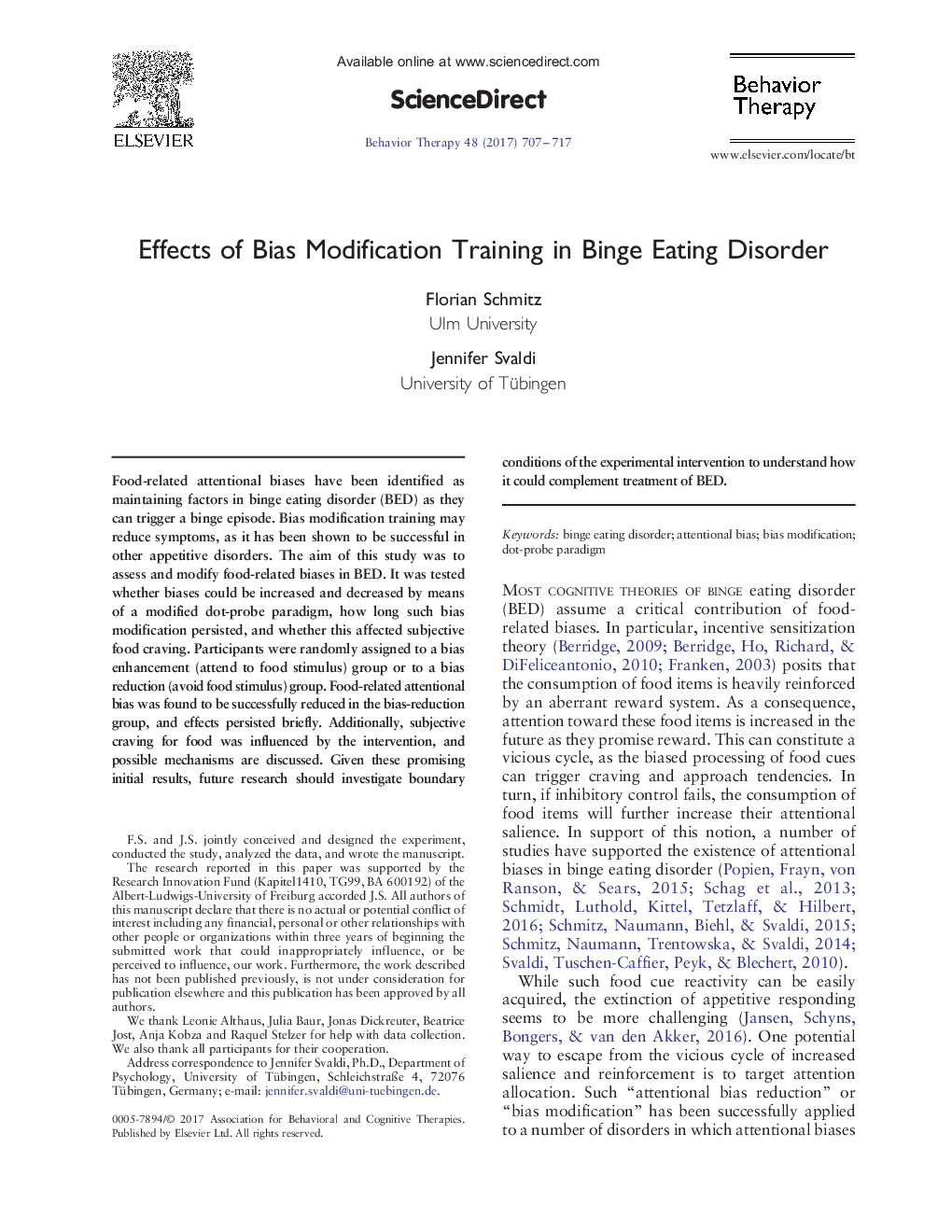| Article ID | Journal | Published Year | Pages | File Type |
|---|---|---|---|---|
| 5038028 | Behavior Therapy | 2017 | 11 Pages |
â¢Individuals with binge eating disorder (BED) show a bias toward food imagesâ¢A modified dot-probe task significantly reduced this food-related biasâ¢Bias modification affected craving for foodâ¢Bias modification training may be promising for individuals with BED
Food-related attentional biases have been identified as maintaining factors in binge eating disorder (BED) as they can trigger a binge episode. Bias modification training may reduce symptoms, as it has been shown to be successful in other appetitive disorders. The aim of this study was to assess and modify food-related biases in BED. It was tested whether biases could be increased and decreased by means of a modified dot-probe paradigm, how long such bias modification persisted, and whether this affected subjective food craving. Participants were randomly assigned to a bias enhancement (attend to food stimulus) group or to a bias reduction (avoid food stimulus) group. Food-related attentional bias was found to be successfully reduced in the bias-reduction group, and effects persisted briefly. Additionally, subjective craving for food was influenced by the intervention, and possible mechanisms are discussed. Given these promising initial results, future research should investigate boundary conditions of the experimental intervention to understand how it could complement treatment of BED.
